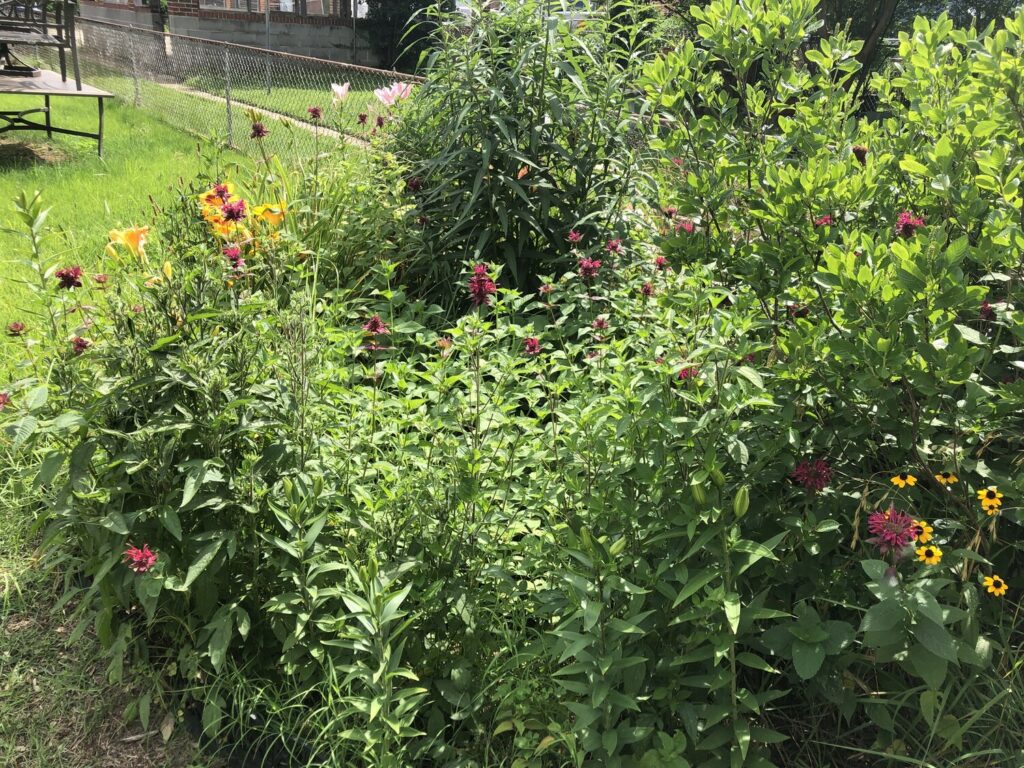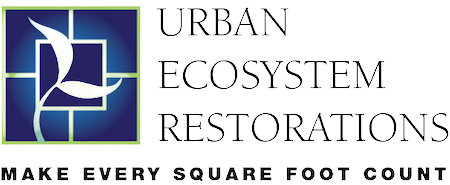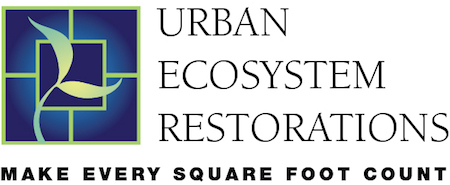
The 2019-20 RiverSmart Maintenance Assistance Program (RSMAP) is empowering District of Columbia homeowners to provide long-term, cost-effective, and science-based care for the rain gardens and conservation landscapes installed and subsidized through the Government of the District of Columbia’s RiverSmart Homes Program. The District Government spends roughly $700,000 every year to install RiverSmart rain gardens and BayScapes on private property. The District Government spends this money to manage stormwater runoff in the District while mitigating the effects of climate change and supporting biodiversity as part of its larger plans for sustainability. When homeowners don’t care properly for their RiverSmart gardens, not only can they become unsightly areas for neighborhoods, but taxpayer dollars are wasted if these essential tools for sustainability fail.
RSMAP was formed as a natural companion service for the RiverSmart Homes installation program, which has installed more than 2,000 rain gardens and BayScapes in the District since 2009. The concept of RSMAP evolved out of a 2016 study conducted by UER, the Landscape Architecture Foundation, and the University of Maryland that revealed the essential need for maintenance support for RiverSmart homeowners. As a follow-up to the study, UER and the Alliance for the Chesapeake Bay began working together in 2018 to address the maintenance gap through a nine-month test program that created the basic framework for RSMAP. The Department of Energy and Environment (DOEE) has funded the maintenance program as it has evolved, including the initial 2016 study, the 2018 test program, and the 2019 RSMAP.
The current RSMAP offers different levels of assistance to homeowners to meet a wide range of maintenance needs. The core program offering provides free advice to homeowners to address the specific needs of their gardens through methods best suited to the particular landowner’s preferences and abilities. Advice is provided by email or phone – much like an “Ask An Expert” service. UER and the Alliance are also building a network of qualified and reliable contractors who can deliver on-site services, for those who prefer not to do the work themselves. As part of RSMAP, UER monitors service delivery and customer satisfaction to ensure the program is meeting the maintenance needs of participating residents. The direct interaction between the RSMAP team and homeowners allows for troubleshooting maintenance issues in real-time.
The Alliance and UER kicked off the 2019 RSMAP with an email announcement about the new program, first in April and then again in May, resulting in 50 homeowner inquiries through RSMAP’s online form. The announcements went out to the entire database of RiverSmart Gardens homeowners, as well as UER newsletter subscribers (see campaign flyer from the last UER newsletter). RSMAP uses both the Alliance website and RiverSmart Homes website to identify homeowners in need of these services.
RSMAP Program Manager Ellena Ochoa says:
By working directly with RiverSmart homeowners on maintenance issues, the RSMAP team is able to provide timely and accurate information and in addition, enable homeowners to use cost-effective and ecologically-sensitive means to take care of their gardens. Through RSMAP, our vision is to promote stewardship and conservation landscaping to the wider community, and the best way to do this is to inspire homeowners to help spread the word to neighbors and friends.
The response to RSMAP has been resoundingly positive, with homeowners expressing gratitude for timely resources designed specifically for RiverSmart gardens. In follow-up surveys to program participants, 100% of the respondents would use the service again and 100% would recommend the program to others. Equally important, RSMAP has proven to be a cost-effective and expedient framework for the maintenance of RiverSmart gardens. Many of the inquiries to RSMAP can be managed through simple fixes, but require a knowledge of how the installations are designed to work and the ongoing care requirements. These fixes can be addressed easily by phone or email. For example, correcting problems such as obstructed inlets for stormwater, infilled retention basins, or damaged berms are aspects of rain gardens that residents may be unfamiliar with but don’t require a lot of cost or effort to fix and maintain.
Based on the success of the first several months of the program, RSMAP has received an expanded budget through 2019, as well as a fresh commitment for funding through 2020. In 2020, RSMAP will continue to expand the customer service base as well as broaden the scope of the educational component of the program – furthering UER’s mission to engage with landowners to preserve and protect Eco-Functioning Spaces. RSMAP is one way that UER is building knowledge and stewardship of urban ecology for the long term.
UER is grateful to the RSMAP partners at the Alliance for the Chesapeake Bay and RiverSmart Homes for the opportunity to carry out this important work.

